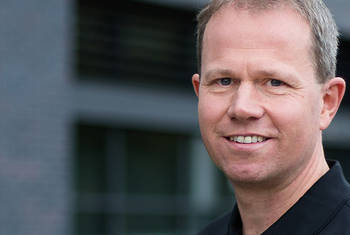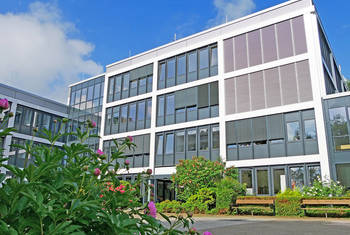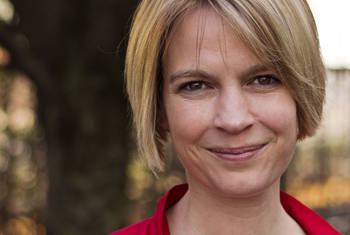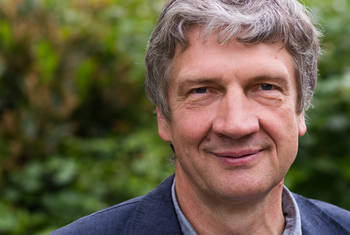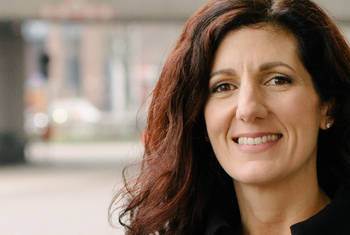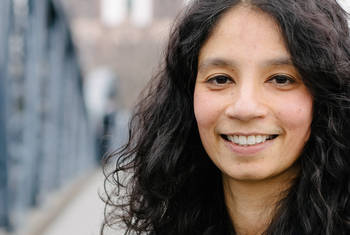Carsten Watzl How Do Natural Killer Cells Protect Themselves and How Does the Killing Process work?
Carsten Watzl is Scientific Director and Professor of Occupational Health at the IfADo – Leibniz Research Centre for Working Environment and Human Factors. Previously, he was affiliated with Heidelberg University and the National Institute of Allergy and Infectious Diseases (NIAID-NIH) in the United States. Among his research interests are immune regulation, natural killer cells and signal pathways. Furthermore, he is Associate Editor of the European Journal of Immunology and of Frontiers of Immunology. Since 2013, he is elected Secretary General of the German Society for Immunology. He has received a number of awards, including the BioFuture Award from the German Ministry of Education and Research in 2004.
Area of Research
Immunology
since 2011
Scientific Director and Professor
IfADo - Leibniz Research Centre for Working Environment and Human Factors (more details)
Occupational Biology
2006
Extraordinary Professor
Heidelberg University (Ruprecht-Karls-Universität Heidelberg)
2006
BioFuture Group Leader
Heidelberg University (Ruprecht-Karls-Universität Heidelberg)
Institute for Immunology
2002-2006
Junior Group Leader
Heidelberg University (Ruprecht-Karls-Universität Heidelberg)
Institute for Immunology
1999-2002
Post-doctoral Fellow
National Institute of Allergy and Infectious Diseases (NIAID-NIH)
Laboratory of Immunogenetics
2004
Habilitation in Immunology
Heidelberg University (Ruprecht-Karls-Universität Heidelberg)
Medical Faculty
1998
PhD in Biology
Heidelberg University (Ruprecht-Karls-Universität Heidelberg)
1995
Diploma in Biology
Heidelberg University (Ruprecht-Karls-Universität Heidelberg)
- German Society for Immunology
- German Society for Cell Biology
- Society for Natural Immnunity
Prizes
- Klaus-Georg und Sigrid Hengstberger Award of the University Heidelberg (2006)
- BioFuture Award from the German Ministry of Education and Research (2004)
- Robert Koch Postdoctoral Award from the Robert Koch Society (2003)
- National Institutes of Health: Fellows Award for Research Excellence (FARE) (2002)
- Roche Molecular Biochemicals Award from the German Society for Cell Biology for the best PhD thesis (2000)
 © IfADo/Kemmler
© IfADo/Kemmler

IfADo - Leibniz Research Centre for Working Environment and Human Factors
Dortmund, GermanyThe IfADo – Leibniz Research Centre for Working Environment and Human Factors investigates the benefits and risks of modern work life from various perspectives – ranging from single cells to entire individuals and groups in their working environment. As a result, IfADo conduct research that contributes to an adequate design of the working environment for the benefit and wellbeing of the working people as well as the maintenance and promotion of performance, health, and competitiveness. IfADo integrates both basic and applied science in its mission to understand human health and disease. Due to the interdisciplinary approach, IfADo’s research comprises four research fields: ergonomics, immunology, toxicology as well as psychology and neuroscience. (source)
Map
Our immune system has evolved many different cells with different functions to prevent infections. One of these functions is cellular cytotoxicity; this means that cells are able to kill other cells. Natural killer cells (NK cells) are one type of these cells that can achieve cytotoxicity. CARSTEN WATZL experiments with NK cells in order to find out how they protect themselves from their own cytotoxic machinery and how they undertake ‘serial killing’. The research group’s results suggest that the molecule CD107a, which is inside the vesicles that contain the cytotoxic molecules, is involved in protecting the NK cell. The researchers also found evidence that the killing process of NK cells is regulated and that the cells know when they have killed another cell. Their discoveries have important applications for the development of treatments for diseases like cancers and autoimmune diseases.
LT Video Publication DOI: https://doi.org/10.21036/LTPUB10522
Surface CD107a/LAMP-1 Protects Natural Killer Cells from Degranulation-Associated Damage
- André Cohnen, Samuel C Chiang, Ana Stojanovic, Hendrik Schmidt, Maren Claus, Paul Saftig, Ottmar Janßen, Adelheid Cerwenka, Yenan T Bryceson and Carsten Watzl
- Blood
- Published in 2013
Termination of the Activating NK Cell Immunological Synapse Is an Active and Regulated Process
- Petra Netter, Moritz Anft and Carsten Watzl
- The Journal of Immunology
- Published in 2017


